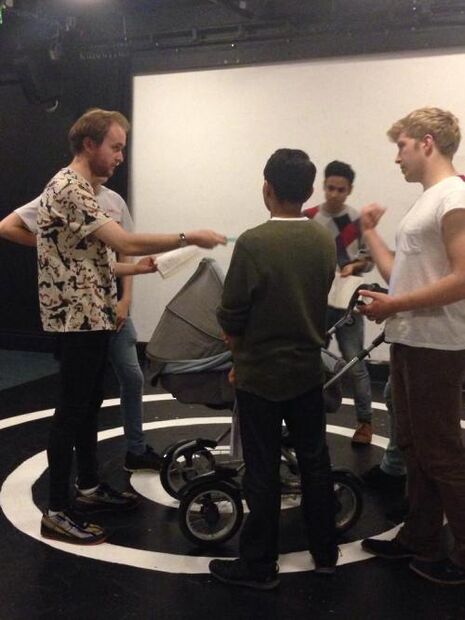Saved
Sophie Birkin thinks this ‘undoubtedly brave’ production is well worth seeing

"It’s dirty." Is a description given by a youth, he is referring to the baby who he goes on to violate and eventually stone to death. These words are spoken in the infamous scene of Edward Bond’s Saved, the very scene that saw the play banned on its release in 1965. However, the words represent more than the act of violence to which they are attached. They describe not the infant but the society into which it has been born, a ‘dirty’ society, soiled by immorality and disorder.
Saved depicts the lives of a group of South-London individuals who are plagued by the world in which they exist. Len, Pam and Fred are bound to lives characterised by violence and repression from which, unlike the murdered child, they cannot be ‘saved’. The production at Corpus Playroom gets to the heart of Bond’s play, translating it from its beginnings into a 2014 context, proving its relevance to the present day.
With this in mind, Saved requires a degree of courage to perform and the production was undoubtedly brave. The intimacy of the Corpus Playroom made the play a fittingly uncomfortable viewing experience whilst also leaving the cast with little room for unnoticed error. There were moments when the veneer of South- London, working-class life was broken. However, these were rectified by the incredibly strong performances from Tara Kearney as Pam and Ben Walsh as Fred. Indeed, the relationship between Kearney and Walsh was the most powerful and captivating aspect of the production. Saved’s capacity for the sordid seems infinite as Pam remains infatuated with Fred who is both father and murderer of her own child. A much-needed comic element is injected into the production by Chris Born who plays the character of Harry. Born was consistent and convincing as Pam’s aloof father and his performance is a real asset to the play.
The extent of Saved’s depiction of immorality is really exemplified by the fact that the most likeable character in the play is Len (Gabriel Agranoff), a man who witnessed the stoning of a baby and chose not to act. This is really a commentary on us, the audience, stressing the importance of acknowledging the faults before us. It is easy to leave the theatre and convince yourself amongst the spires of Cambridge that Saved was an overblown depiction of a virtual horror world. Bond pushes us to consider that it is not. Due to the rarity of productions of Saved it is unlikely that you will ever be faced with such a dilemma; I would urge you to go and put yourself in a position where you are.
 Features / Should I stay or should I go? Cambridge students and alumni reflect on how their memories stay with them15 December 2025
Features / Should I stay or should I go? Cambridge students and alumni reflect on how their memories stay with them15 December 2025 News / SU reluctantly registers controversial women’s soc18 December 2025
News / SU reluctantly registers controversial women’s soc18 December 2025 News / Dons warn PM about Vet School closure16 December 2025
News / Dons warn PM about Vet School closure16 December 2025 News / Cambridge study finds students learn better with notes than AI13 December 2025
News / Cambridge study finds students learn better with notes than AI13 December 2025 Arts / A beginner’s guide to Ancient Greek tragedy16 December 2025
Arts / A beginner’s guide to Ancient Greek tragedy16 December 2025








